Relationships--and ending them--are important for happiness
Published in Social Sciences, Behavioural Sciences & Psychology, and Economics

In a new study published in the journal Emotion, my colleagues and I found that cultures with "relationship free markets" tend to be happier. This is somewhat of a paradox because many studies have found that social relationships are one of the most consistent predictors of happiness. Yet our analysis found that people tend to be happier in cultures where they say they'd leave their social groups if they want to.
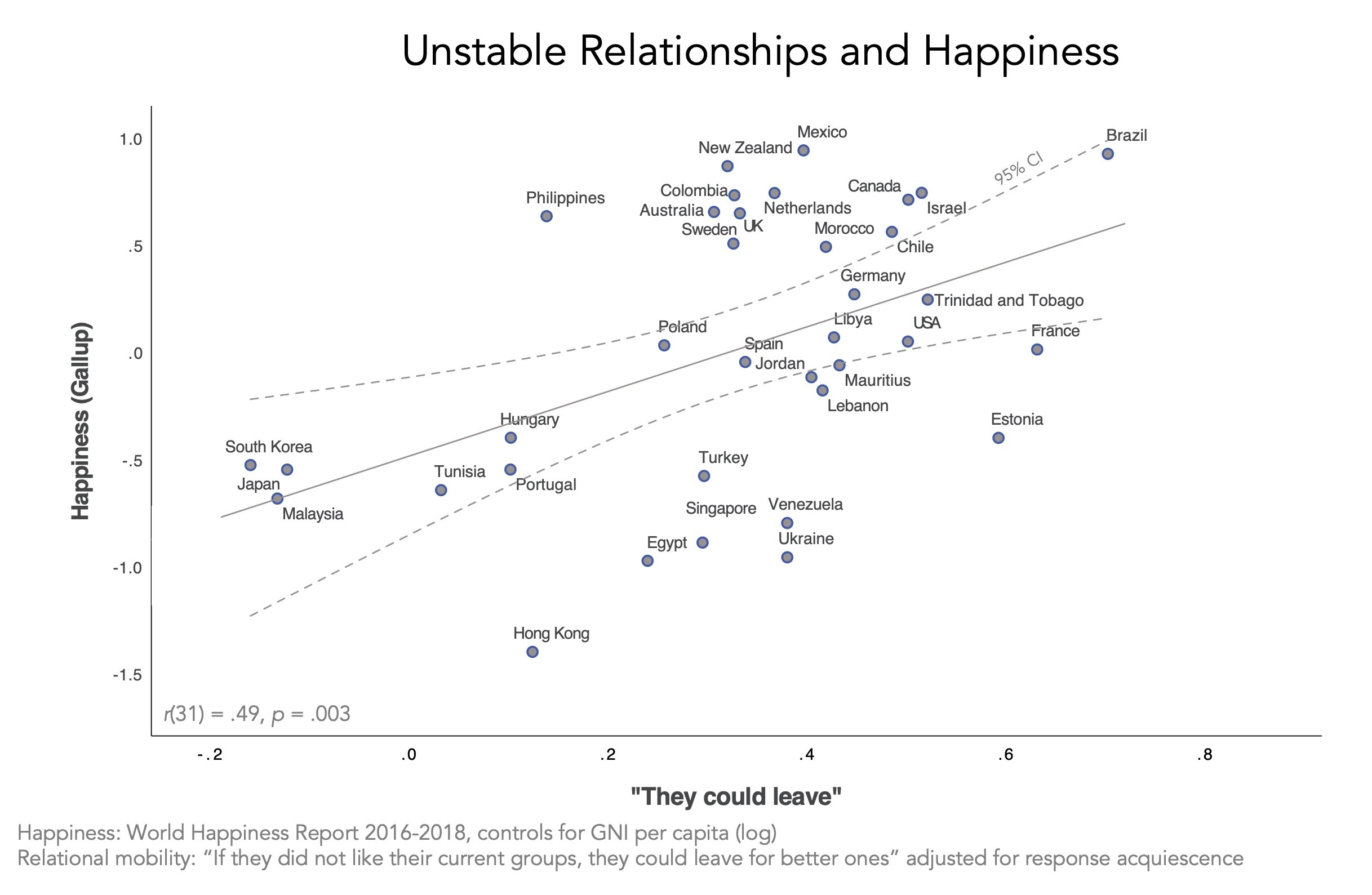
A truism in psychology these days is that relationships are the key to happiness. For example, a classic study of “very happy people” found that ALL very happy people had good social relationships.

So it seems a little puzzling that the happiest cultures in the world are more likely to say that they’d leave their groups if they want to. But it makes sense if we look at where that question came from. It’s from a study on relational mobility across 39 cultures.
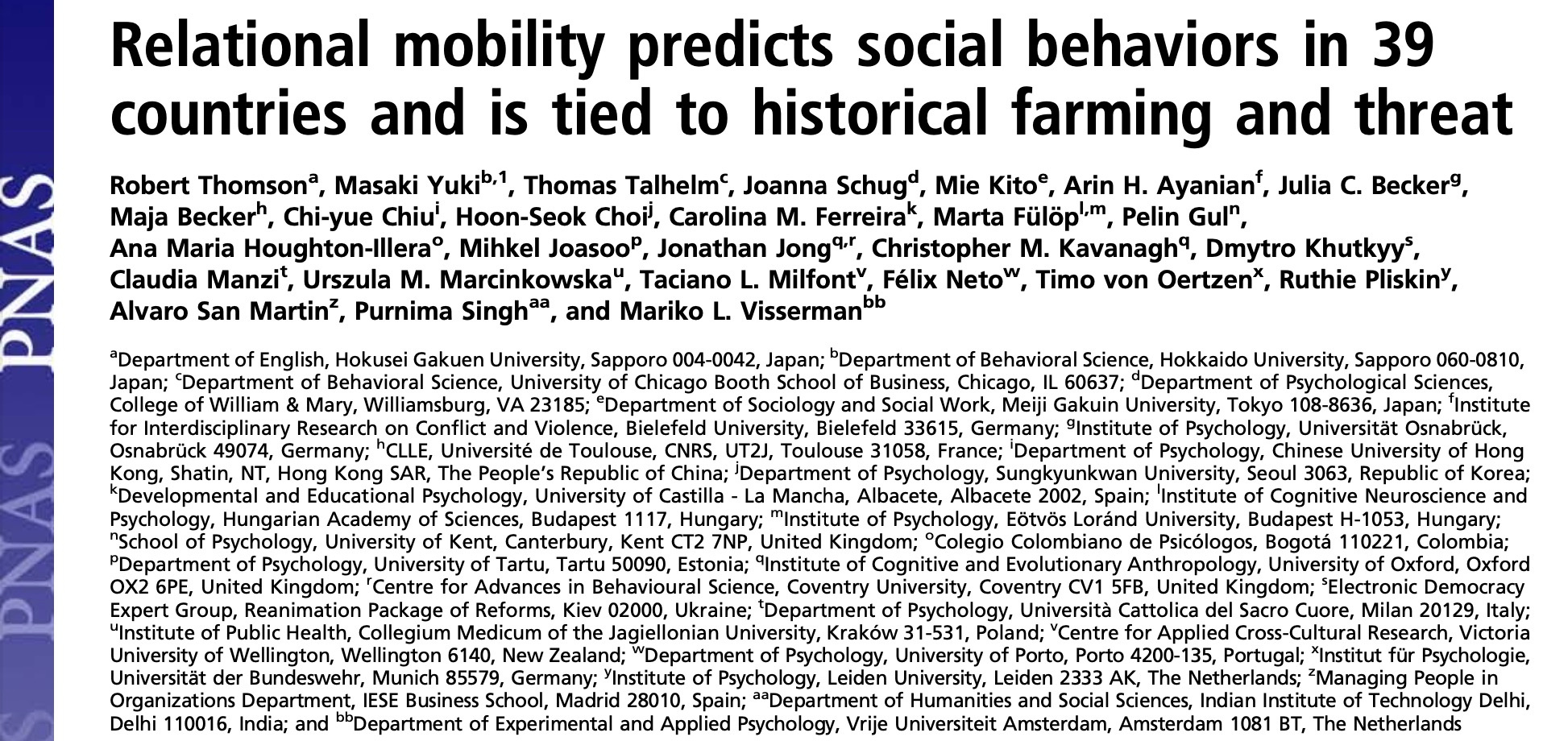
The relational mobility surveys asks whether the people in your society (1) would leave people they don’t like and (2) have lots of chances to meet new people.
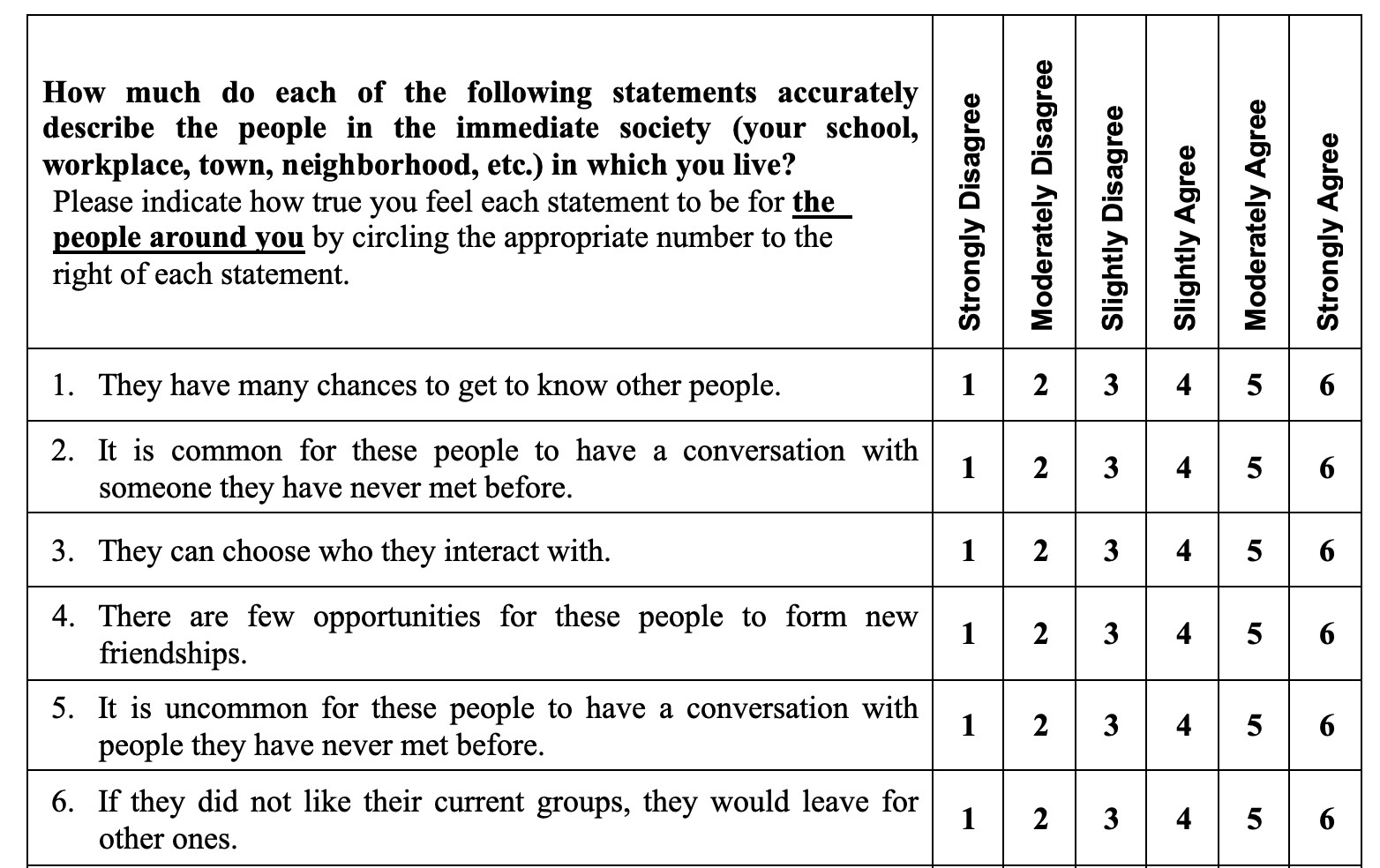
Breaking relationships sounds bad, but it can also mean pruning. Prune away unsatisfying relationships for people who fit better.
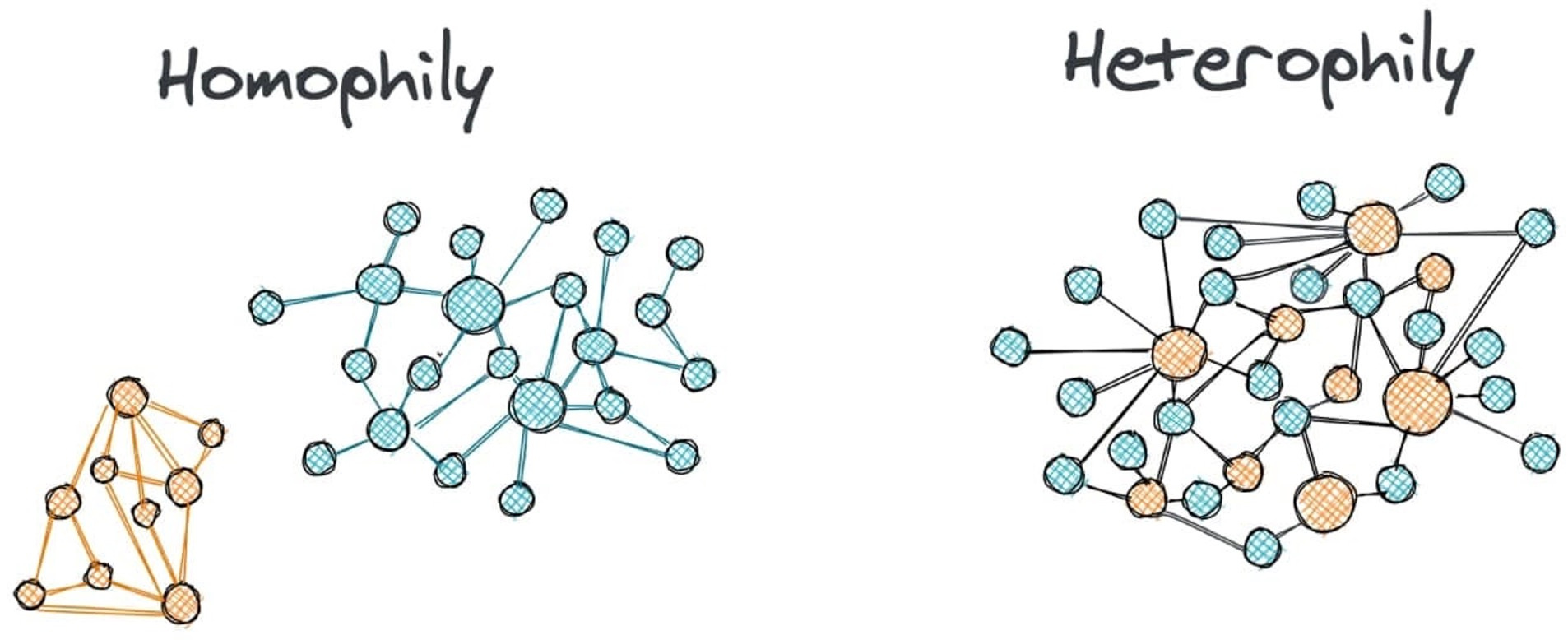
Pruning could explain cultural differences in “homophily”—having similar interests and values with their friends. People in relationally mobile cultures like the US and Australia report more homophily.
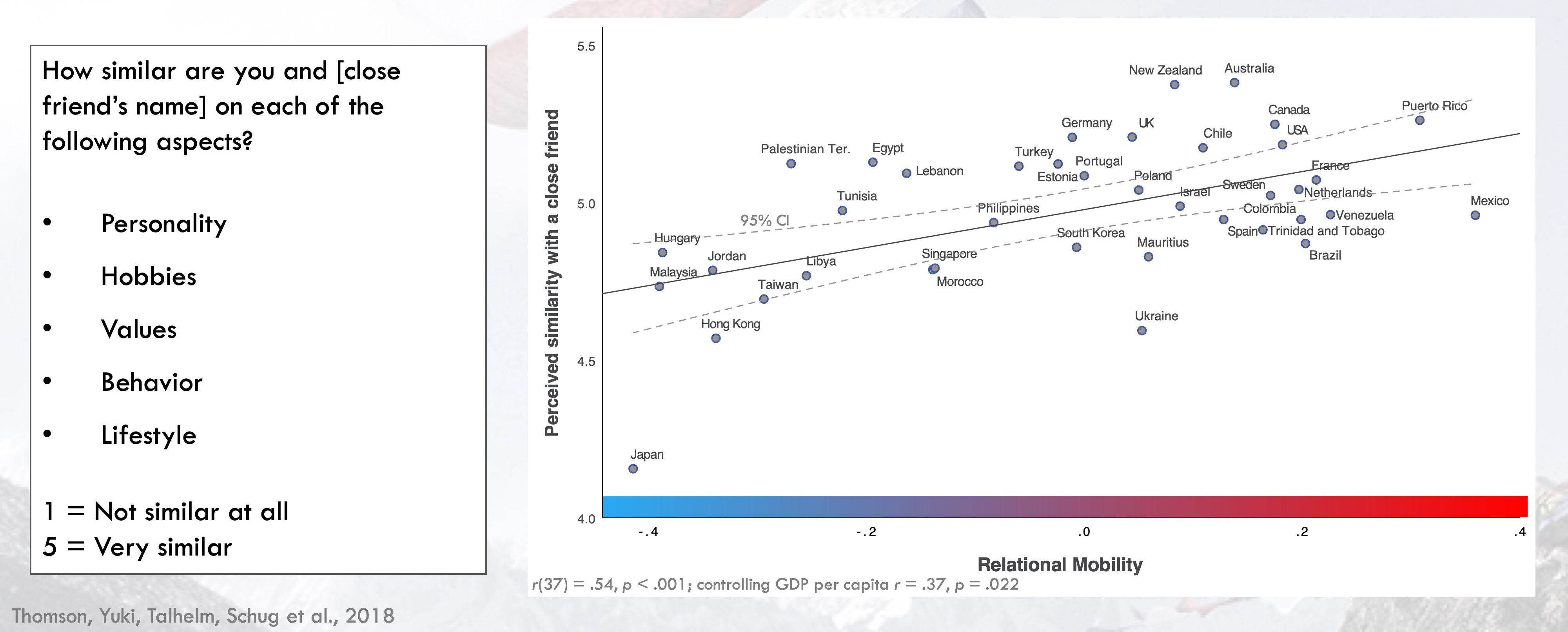
In line with this idea, we found that cultures where people report more relational mobility tend to be happier.
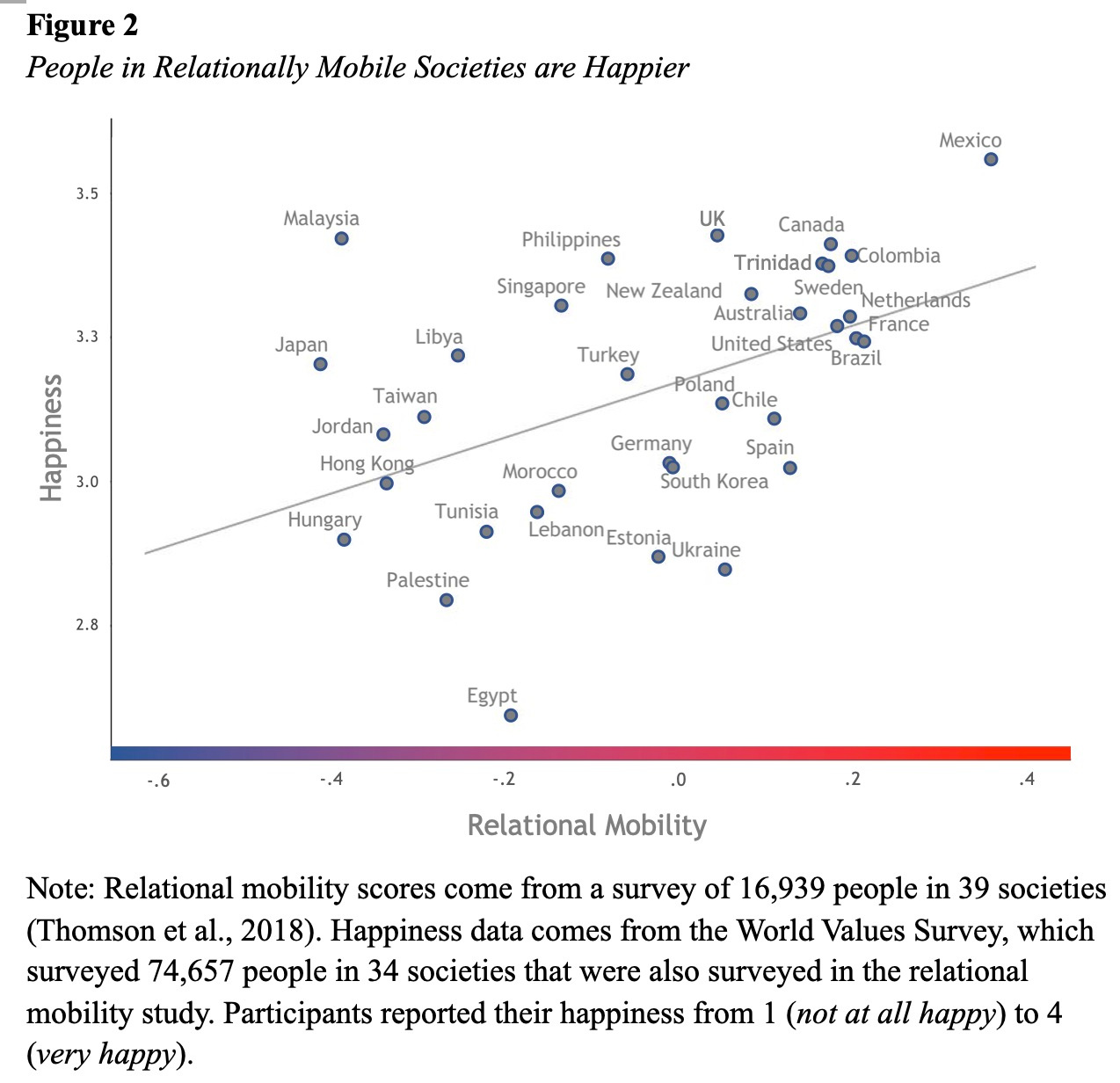
But there are lots of confounds when we compare countries around the world. Even the importance of happiness itself differs between Western and non-Western cultures.
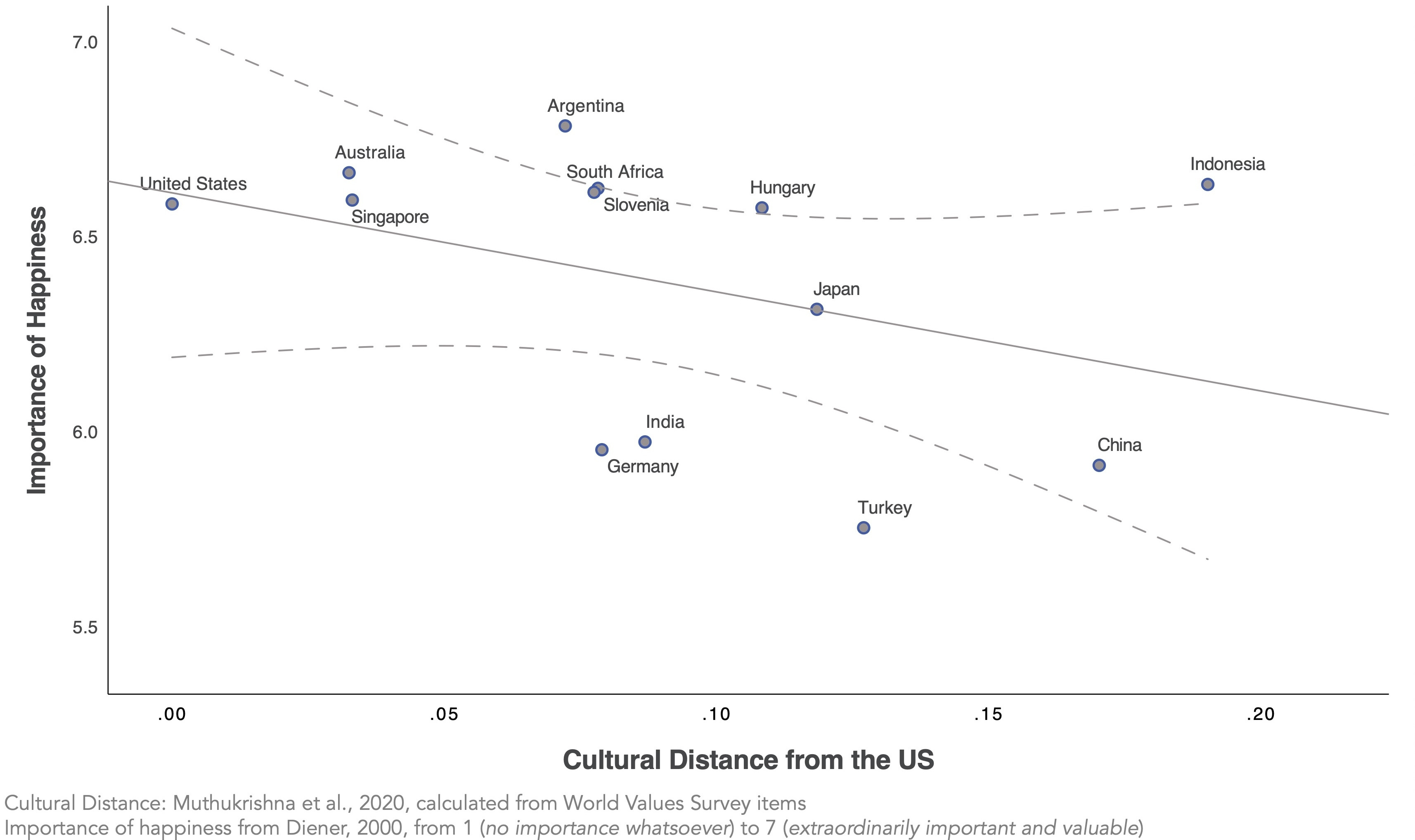
One way to get around confounds across countries is to zoom into a single country. We measured relational mobility in a representative sample of 22,669 people across 328 prefectures in China.
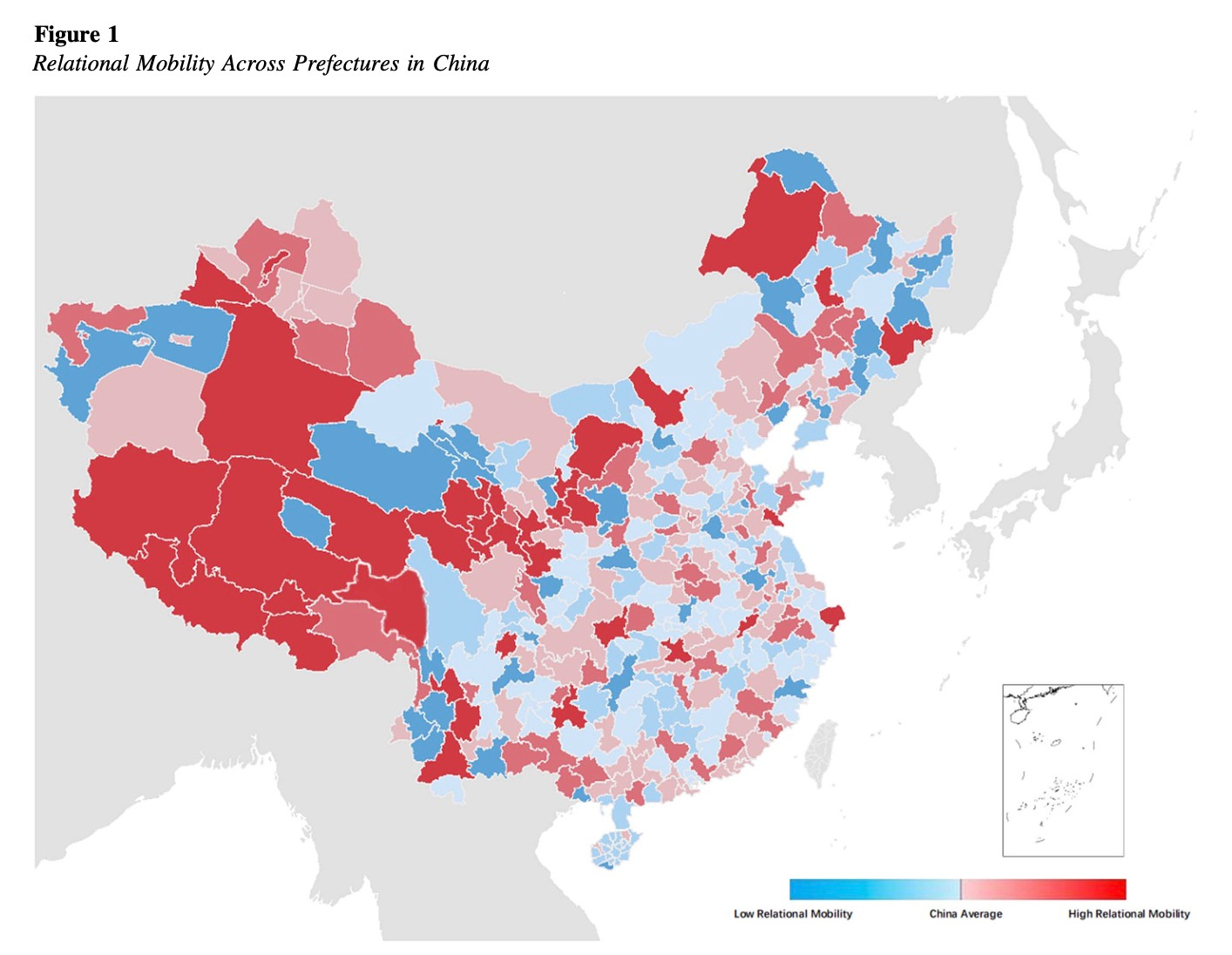
Comparing prefectures (similar to US counties) within China, we found again that people were happier in communities with more relational mobility.
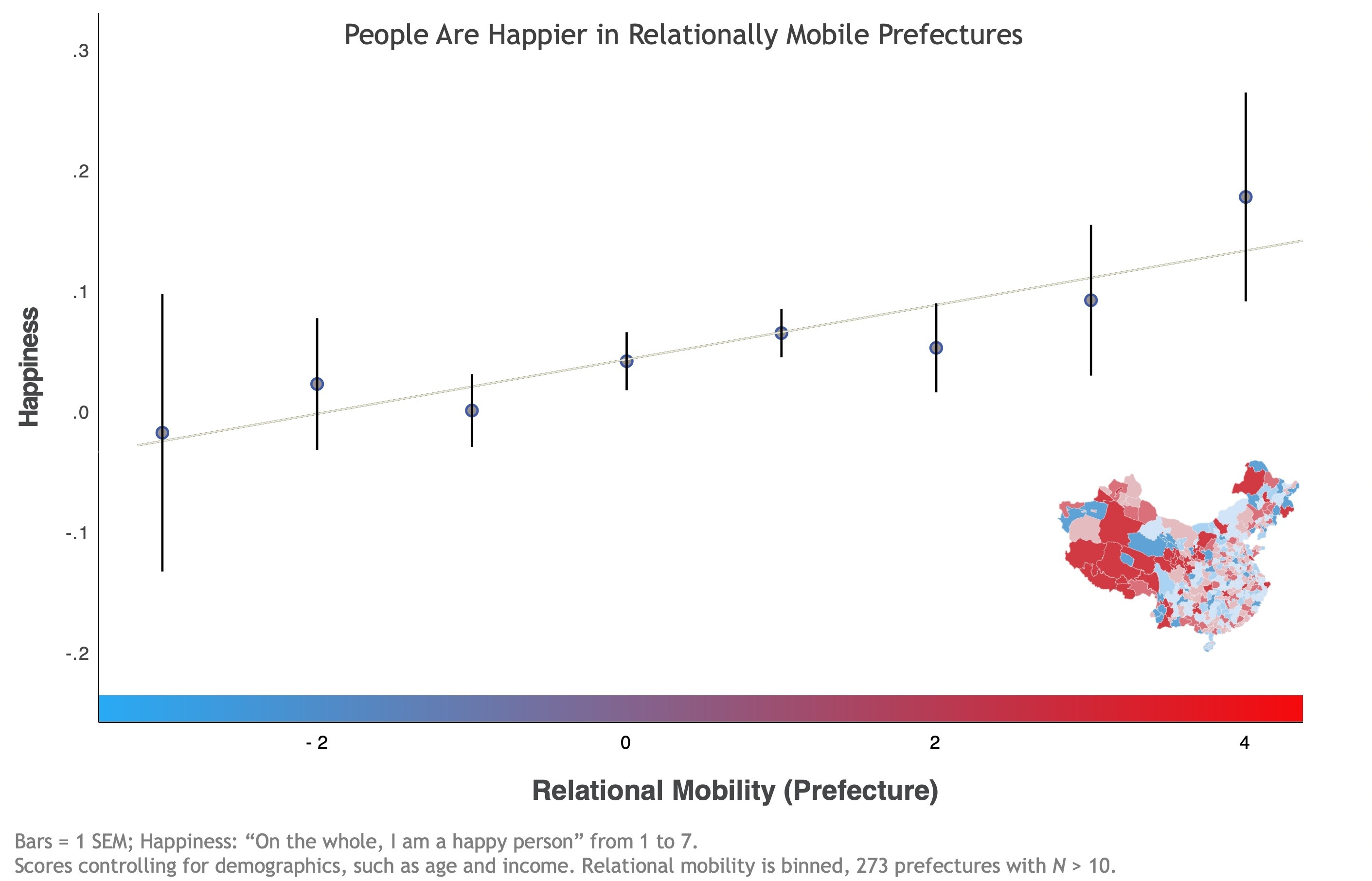
And that relationship held even after controlling for the typical confounds—income, GDP per capita, urbanization, and more.
So that rules out a lot of confounds between nations, but one weakness is it’s still just a snapshot in time. We can get a stronger insight into causality if relational mobility can future changes in happiness over time.
To get at that question, we surveyed students at 13 universities across China as they moved to college. Then we surveyed them again three years later. Students who moved to college in places that had higher relational mobility became happier over time.
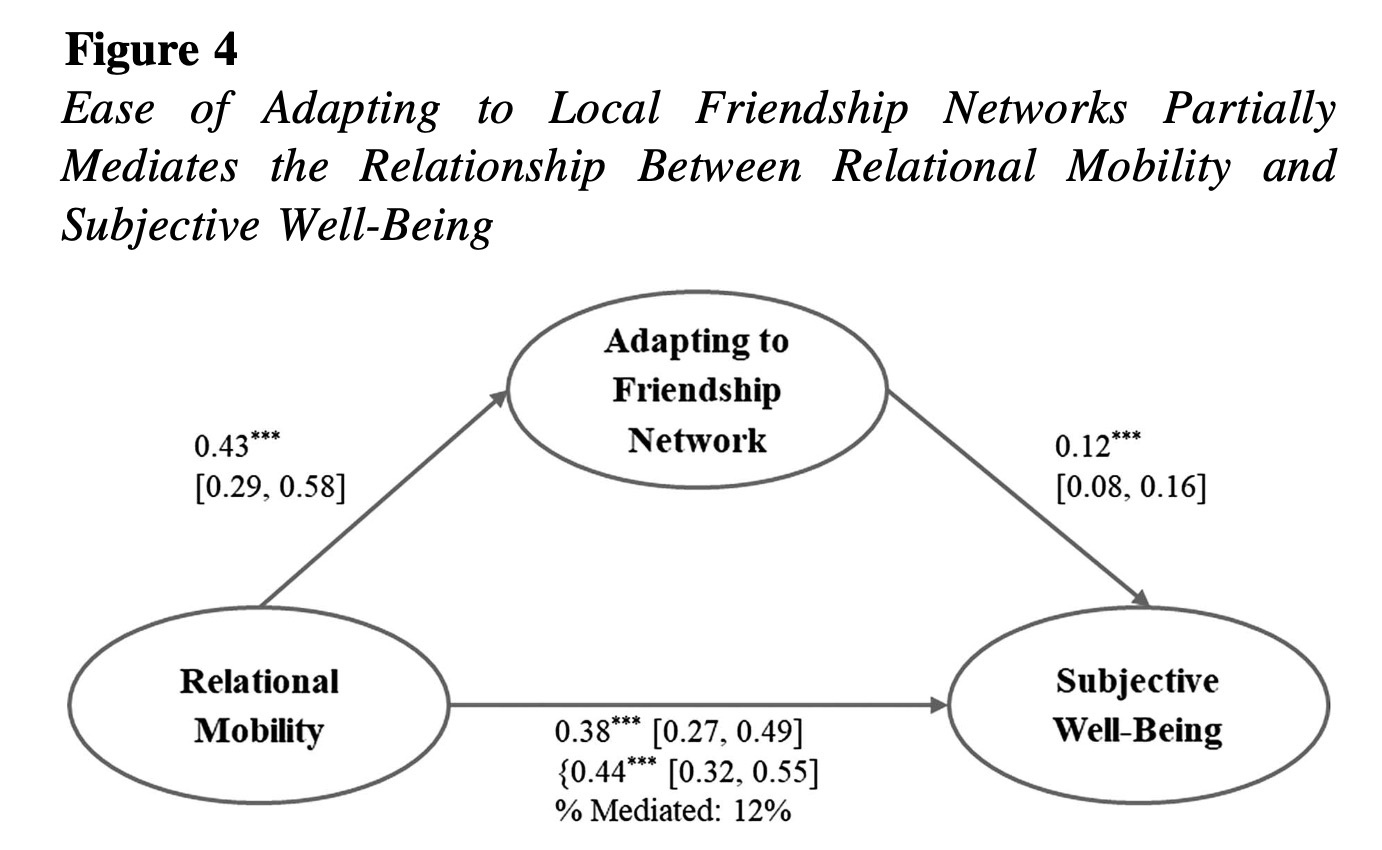
And at least part of this increase in happiness was explained by students having an easier time making friends in the new community. That’s another side benefit of relational mobility. It’s easier to be a newcomer in a mobile place!
In short, people tend to be happier in places where people say they have freedom to leave bad relationships and groups, as well as plenty of opportunities to meet new people. It’s not that relationships are bad, but having choice and the options to “prune” relationships are probably the key.


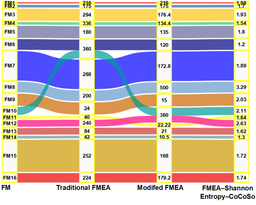



Please sign in or register for FREE
If you are a registered user on Research Communities by Springer Nature, please sign in
Free download available on SSRN: https://papers.ssrn.com/sol3/papers.cfm?abstract_id=4993449
Our paper was selected as an Editor’s Choice selection recently! Free download also available on Emotion within this month: https://psycnet.apa.org/PsycARTICLES/journal/emo/25/3